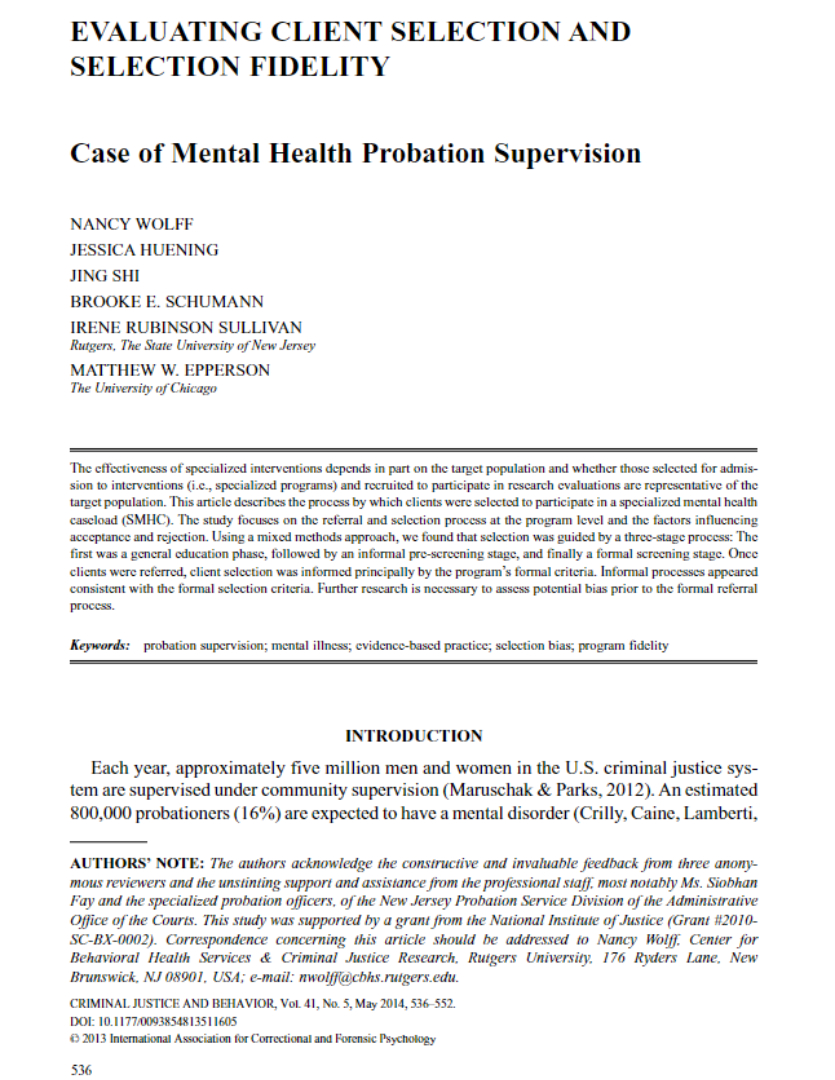The effectiveness of specialized interventions depends in part on the target population and whether those selected for admission to interventions (i.e., specialized programs) and recruited to participate in research evaluations are representative of the target population. This article describes the process by which clients were selected to participate in a specialized mental health caseload (SMHC). The study focuses on the referral and selection process at the program level and the factors influencing acceptance and rejection. Using a mixed methods approach, we found that selection was guided by a three-stage process: The first was a general education phase, followed by an informal pre-screening stage, and finally a formal screening stage. Once clients were referred, client selection was informed principally by the program’s formal criteria. Informal processes appeared consistent with the formal selection criteria. Further research is necessary to assess potential bias prior to the formal referral process.
Evaluating client selection and selection fidelity: Case of mental health probation supervision.
Citation:
Wolff, N., Huening, J., Shi, J., Schumann, B., Rubinson, I., & Epperson, M. (2014). Evaluating client selection and selection fidelity: Case of mental health probation supervision. Criminal Justice & Behavior, 41(5), 536-551. doi: 1177/0093854813511605
